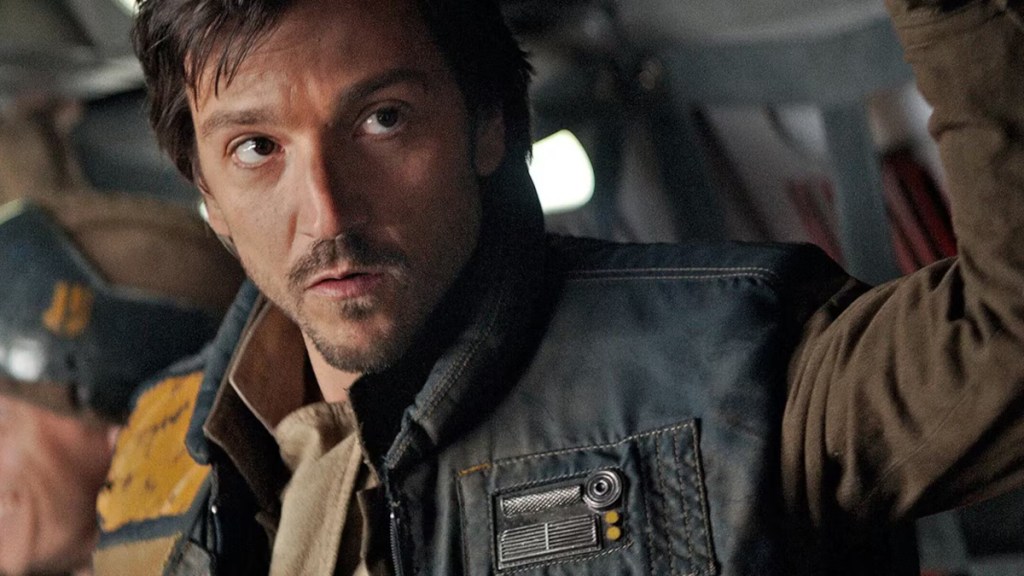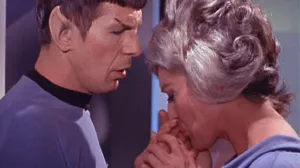Kathleen Kennedy is reportedly stepping down as Lucasfilm president by the end of 2025, according to a February report from Puck News that cites three sources close to the situation. After nearly 13 years guiding the iconic Star Wars studio through Disney’s ownership, Kennedy has apparently informed both the company and close associates about her decision to exit. While Disney and Kennedy’s representatives have yet to publicly comment on her potential departure, the timing suggests she would conclude just as Star Wars prepares to return to theaters, with The Mandalorian & Grogu theatrical film in 2026 serving as the final project developed under her leadership.
Videos by ComicBook.com
The reported departure comes after years of speculation about Kennedy’s future at the company, with previous rumors of her exit circulating as far back as 2018. According to Puck’s reporting, Kennedy—who turns 72 in June—had initially planned to leave in 2024 before deciding to stay one additional year. Sources claim she has been “telegraphing her exit” through personal decisions like selling her Malibu home and offloading art while increasingly discussing plans to collaborate more closely with her husband, veteran producer Frank Marshall. If confirmed, her departure would conclude a contentious chapter in Lucasfilm’s history that transformed the Star Wars franchise through ambitious expansion while weathering significant criticism from portions of the fanbase.
[RELATED: 43 Years Later, Star Wars Fans Agree This Is Still the Saddest Scene in the Franchise]
Kennedy’s most enduring achievement at Lucasfilm may be her decision to pivot the Star Wars universe toward streaming content, with The Mandalorian becoming a cultural phenomenon that helped establish Disney+ in the competitive streaming landscape. The series introduced characters like Grogu (popularly known as “Baby Yoda”), who captured worldwide attention and merchandise sales while earning critical acclaim. However, this success came after a turbulent theatrical strategy that saw the sequel trilogy—The Force Awakens, The Last Jedi, and The Rise of Skywalker—generate nearly $4.5 billion at the global box office while increasingly dividing audiences. Plus, the 2018 release of Solo: A Star Wars Story marked a turning point when it became the first Star Wars film to lose money, with its $392 million worldwide gross falling well short of its substantial production and marketing costs.
Kathleen Kennedy’s Mixed Legacy of Triumphs and Disappointments

Throughout Kennedy’s tenure, Lucasfilm has produced movies and TV shows with dramatically varied critical and commercial reception, reflecting the challenges of maintaining quality and consistency across a rapidly expanding fictional universe. In addition to The Mandalorian, Andor, created by Tony Gilroy, emerged as perhaps the most critically acclaimed Star Wars project of the Disney+ era, earning widespread praise for its sophisticated political themes, complex characters, and mature approach to storytelling.
In contrast, The Acolyte, which attempted to explore the previously untapped High Republic era, faced significant backlash from portions of the fanbase despite moderate critical reception. Similarly, The Book of Boba Fett initially generated excitement by focusing on the iconic bounty hunter but ultimately disappointed many viewers with narrative choices that seemed to undermine the character’s mystique. These inconsistent results speak to the broader challenges Kennedy faced in satisfying both longtime fans and attracting new audiences to the franchise.
Kennedy’s struggles extended beyond the Star Wars galaxy to other Lucasfilm properties. Indiana Jones and the Dial of Destiny (2023) served as the fifth installment in the beloved adventure series but received mixed reviews and underperformed commercially despite its massive $300 million production budget. The film grossed approximately $384 million worldwide—significantly less than its predecessor, 2008’s Kingdom of the Crystal Skull, which earned $790 million globally. Even more disappointing was the fantasy series Willow, a revival of the 1988 Ron Howard film that was canceled after just one season on Disney+ due to poor viewership.
As Kennedy potentially prepares to exit, her final contributions to Lucasfilm appear focused on rebuilding the studio’s creative momentum. The highly anticipated second season of Andor arrives this April, promising to conclude the compelling origin story of rebel spy Cassian Andor (Diego Luna) while maintaining the high production values and sophisticated storytelling of its predecessor. Meanwhile, The Mandalorian & Grogu represents a bold strategic pivot, attempting to leverage the streaming success of these beloved characters into theatrical box office returns when it premieres in 2026. Directed by Jon Favreau, this film could potentially bridge Lucasfilm’s streaming accomplishments with its theatrical ambitions, serving as a fitting final chapter to Kennedy’s leadership if the reported departure timeline proves accurate.
What do you think about the change of management at Lucasfilm? Do you think a new president would improve the Star Wars franchise and add more chaos to the mix? Join the discussion in the comments!








